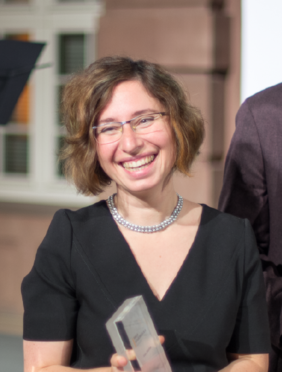The brain on the edge of chaos
Millions of neurons interact in the brain that organises itself into a complex system. The neuroscientist Anna Levina focuses her attention on what is known as criticality, an important characteristic of the brain’s self-organisation: In a critical state, the transmission of signals resembles an avalanche. If a nerve cell transmits an electrical impulse, it can trigger another impulse in the next neuron down the line, but does not necessarily do so. Depending on whether and how often impulses are transmitted it can lead to a chain of neuronal discharges like an avalanche. It is believed that these events play an important role in processing information in the brain. In earlier work, Anna Levina already made significant contributions to the mathematical analysis and modelling of such critical states in neuronal systems. In the future, she not only wants to drive our understanding of neuronal dynamics in the brain but, as a Sofja Kovalevskaja award winner, to concentrate on analysing particularly efficient neuronal networks, which are also important for developing artificial intelligence.
Dr Anna Martius, née Levina was born in the Soviet Union in 1981 and studied Mathematics at St Petersburg State University. In 2004, she relocated to the University of Göttingen where she completed her doctorate in 2008. Her first postdoctoral position was at Göttingen’s Max Planck Institute for Dynamics and Self-Organisation from where she transferred to the Max Planck Institute for Mathematics in the Sciences in Leipzig in 2011. From 2015 to 2017, Anna Levina was a Fellow at the Institute of Science and Technology in Klosterneuburg, Austria. Since April 2017, she has been pursuing her research at the Max Planck Institute for Biological Cybernetics in Tübingen.
With the Sofja Kovalevskaja Award, young researchers receive risk capital for innovative projects during an early stage in their careers. The Sofja Kovalevskaja Award allows them to conduct research at a German university or research institute for a period of up to five years and develop their own research groups for this at their host institutes. The award is financed by the Federal Ministry of Education and Research.
